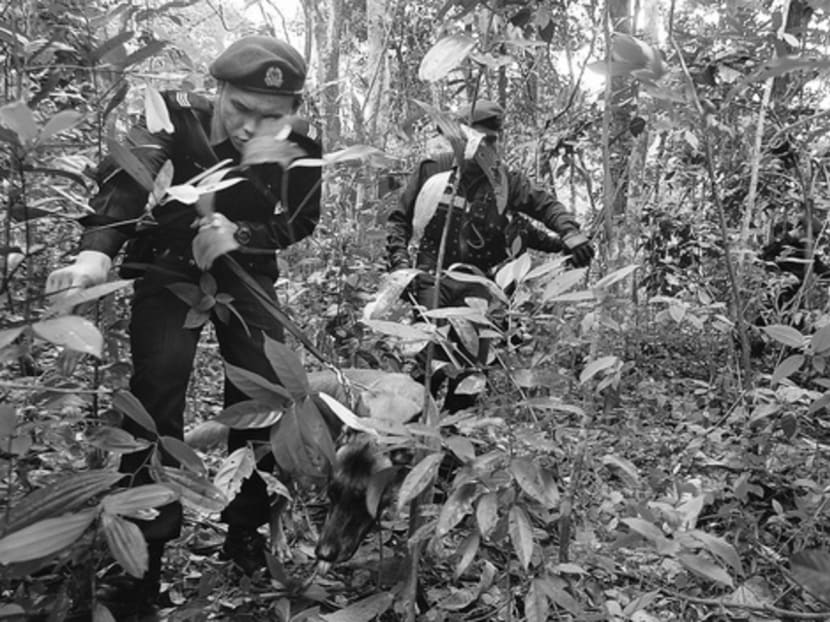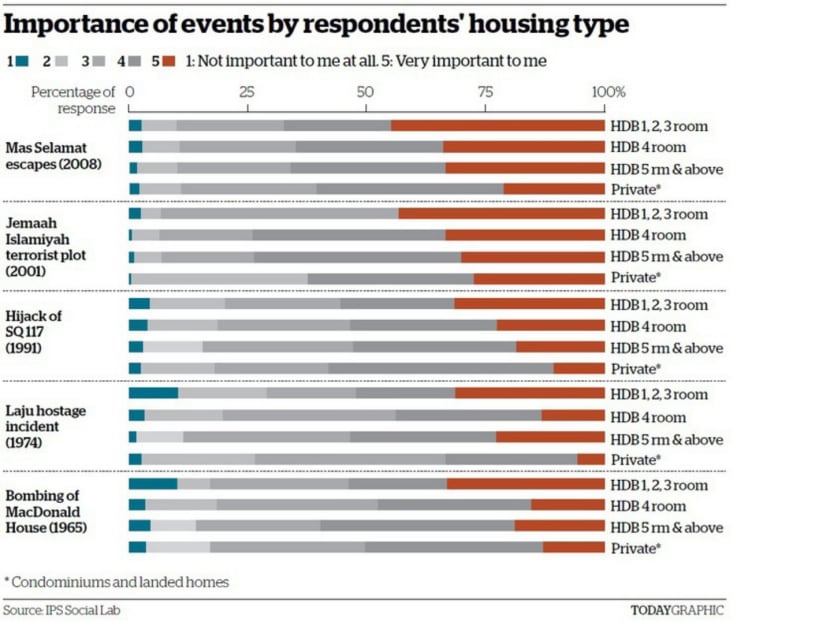S’poreans taking national security for granted?
The recent terrorist attacks on a satirical newspaper headquarters and a Jewish supermarket in France are stark reminders that there is no place for complacency in national security.


The recent terrorist attacks on a satirical newspaper headquarters and a Jewish supermarket in France are stark reminders that there is no place for complacency in national security.
Singapore has been fortunate so far — a plot by the Jemaah Islamiyah (JI) terrorist group to bomb key installations in Singapore was foiled in 2001. But a generation of Singaporeans who have not faced violence, unrest and disruption to order may take our national security for granted.
A recent survey on how Singaporeans perceive the country’s history found that Singaporeans generally had a low awareness of security threats.
The survey, conducted by the Institute of Policy Studies between August and October last year, asked 1,516 Singapore citizens aged 21 and above if they were aware of 50 historical events from the founding of modern Singapore in 1819 to the previous General Election in 2011.
The terrorism-related events in the sample list included: The bombing of MacDonald House (1965), Laju hostage incident (1974), hijack of Singapore Airlines Flight SQ117 (1991), foiling of the JI terrorist plot (2001), and JI leader Mas Selamat’s escape from detention (2008).
While the majority (95 per cent) of the respondents sampled were aware of Mas Selamat’s escape, less than a quarter knew about the Laju hostage incident (22 per cent) and only about half (53 per cent) were aware of the bombing of MacDonald House. Less than three-quarters said they knew about the hijack of SQ117 (61 per cent) and the JI plot (67 per cent).
Respondents who said they were aware of the events were then asked further questions, including whether or not they felt the event was important to them, and to future generations. An event can be important, or resonate strongly with an individual, although that person is not directly affected.
They were asked to rate the importance of the event, with 1 being “Not important to me at all” to 5 being “Very important to me”. Around half of the respondents gave the hijack of SQ117 (46 per cent), bombing of MacDonald House (49 per cent) and Laju hostage incident (56 per cent) scores of between 1 and 3, with 2 being “Not important to me” and 3 being “Neutral to me”.
When asked about the importance to future generations, the ratings were even lower, at 37 per cent, 41 per cent and 34 per cent, respectively.
DIFFERENT ATTITUDES AMONG PUBLIC, PRIVATE HOUSING RESIDENTS
When the data was analysed according to housing type, it showed, on average, that a higher percentage of respondents living in condominiums and landed property (63 per cent) were aware of the terrorist incidents, compared with respondents living in one-, two- and three-room Housing and Development Board (HDB) flats (53 per cent). Conversely, a lower percentage of respondents living in condominiums and private estates felt that the terrorist incidents were of importance — 53 per cent versus 61 per cent.
It could be that private-estate dwellers, who we might expect to be more socially mobile, have more access to information, whether from the media or their social networks. Hence, the respondents in the survey who lived in private housing were more aware of historical events that had an impact on national security. But why did the same respondents feel that these events mattered less to them than the residents of public estates, as evidenced in the graphic above?
In particular, only half or less of private-estate dwellers rated the Laju hostage incident (33 per cent) and the bombing of MacDonald House (50 per cent) 4 (“Important to me”) or 5. In the case of the Mas Selamat escape (61 per cent) and JI plot (62 per cent), fewer private-estate dwellers rated these as important compared with those living in public housing. The only exception was the hijack of SQ117. The majority of private-estate dwellers said this was an important event. This could be because they are more exposed to international travel and, thus, more sensitive to airplane-related terrorism.
A possible reason for private-estate dwellers not finding past security threats important could be that they probably have greater social capital and financial resources to cope in difficult times. Hence, they may be better able to manage any physical and economic fallout that may come about from a disruption to their daily lives.
Conversely, residents of one-, two- and three-room public housing may be less confident about coping with unforeseen disruptions to their daily routine.
In general, the lack of awareness and lower level of importance accorded to terrorism-related events do indicate some level of complacency, although not necessarily. The fact that more respondents rate the Mas Selamat escape and JI terrorist threat as relatively more important than other incidents may indicate that recent events are more likely to be recalled.
The findings suggest that it is difficult to sustain vigilance and easy to take national security for granted. This despite Singapore’s leaders, such as Deputy Prime Minister Teo Chee Hean, stressing the need for continued vigilance.
In a parliamentary debate last year, Mr Teo, who is also Home Affairs Minister, announced that a “handful of Singaporeans” were known to have joined the extremist group Islamic State in Syria, and warned that the threat of terrorism persists in Singapore.
The Home Affairs Ministry conducted an exercise in 2010 to test how Singaporeans would react to threats in a public area.
A car emitting smoke was placed at nine strategic locations, such as Orchard Road and Shenton Way, re-enacting the foiled terrorist incident at New York’s Times Square in 2010. A startling 96 per cent of passers-by did not notice the cars.
Among those who did, only one in five attentive passers-by took measures to alert the authorities.
One way to replace complacency and apathy towards security threats is to perhaps increase the public’s sense of empathy for Singaporeans who have been affected by terrorism in one way or another.
Stories such as the Mumbai attacks in 2008 where a Singaporean lost her life, or incidents such as the Laju hostage crisis and the hijack of SQ117, can be taught in social studies classes or used in awareness campaigns, to highlight the consequences of transnational terrorism and how fragile peace is.
ABOUT THE AUTHOR:
Magdalene Choo is a Research Associate at the IPS Social Lab. Results of the IPS Study on Perceptions of Singapore’s History, mentioned in this piece, can be found on the IPS website.






